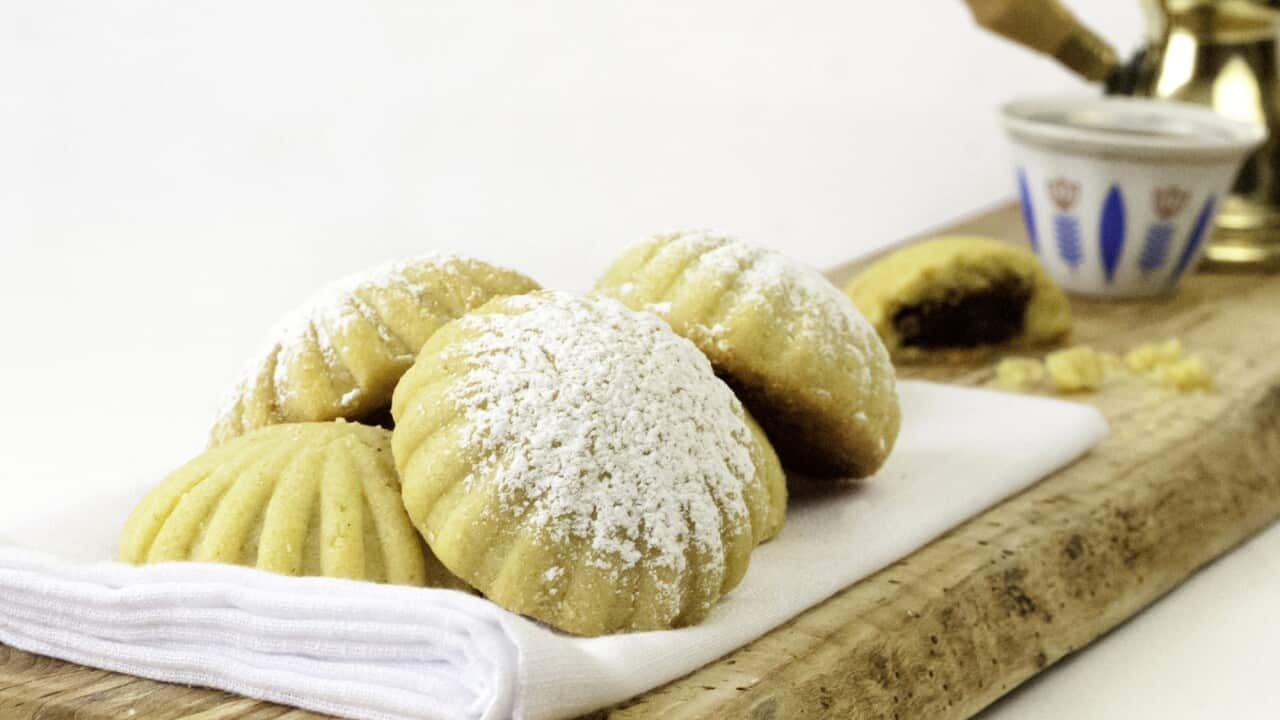makes
16
prep
20 minutes
cook
35 minutes
difficulty
Easy
makes
16
serves
preparation
20
minutes
cooking
35
minutes
difficulty
Easy
level
Ingredients
Filling
- 500 g pitted dates, chopped finely
- 2 tbsp butter
- ½ tsp ground nutmeg
- 1 tbsp water
Dough
- ½ tsp instant dried yeast
- ⅓ cup (80 ml) warm water
- 1 tbsp sugar
- 2 cup coarse semolina flour
- ¾ cup (110 g) flour
- 1 cup unsalted butter, melted
- 2 tbsp lactose-free milk
Resting time: overnight
Instructions
1. Preheat oven to 190°C (375 F).
2. Add dates, butter, nutmeg and water to a saucepan and stir. Gently simmer for 10 minutes, stirring occasionally. Remove from heat. Place dates into a greased flat-bottomed dish. Flatten out with a spatula and set in fridge to cool.
3. For the dough, stir the yeast in water and let sit for 10 minutes. Add flours, sugar and butter to a large bowl. The butter should be warm, but not hot. Massage butter into mixture until it takes on a sand-like consistency. Set in fridge to cool overnight.
4. Stir the yeast into warm water and let sit for 10 minutes. Add the yeast mixture and milk to dough after it has cooled. Mix until just combined.
5. Knead the dough until it is pliable and then separate into 16 portions. Roll each portion into a ball. Remove the date mixture from the fridge, wet your hands with water, and separate into 16 portions. Roll into a smaller ball than the dough ball you started with.
6. Flatten a ball of dough against a lightly floured surface. Pick up the round of dough and place it on one palm. Place the date ball in the middle of the dough and wrap the dough around the filling. Roll between palms to make it smooth. Place onto a greased baking tray.
7. Repeat with the rest of the dough and filling.
8. Either press each dough ball into a maamoul mould (you can buy these in specialty stores) and then place back on tray, or pattern the top of each ball however you please with a fork. Bake for 20-25 minutes, or until cookies are golden. Serve with hot tea or coffee.
Cook's Notes
Oven temperatures are for conventional; if using fan-forced (convection), reduce the temperature by 20˚C. | We use Australian tablespoons and cups: 1 teaspoon equals 5 ml; 1 tablespoon equals 20 ml; 1 cup equals 250 ml. | All herbs are fresh (unless specified) and cups are lightly packed. | All vegetables are medium size and peeled, unless specified. | All eggs are 55-60 g, unless specified.

